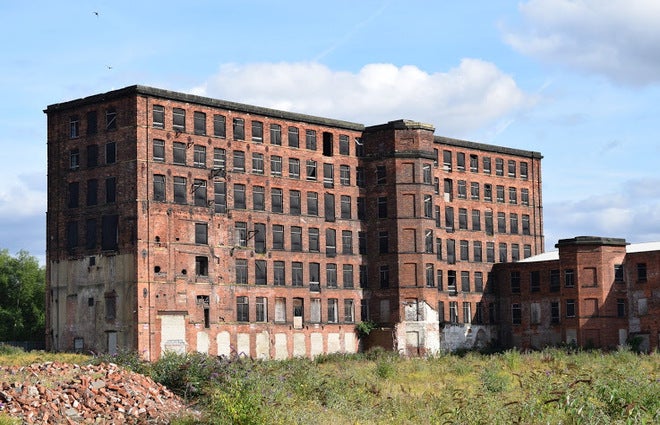Errors & Omissions: those mills – dark, satanic and wrongly dated
‘Significant’ signifying little, ‘do we mean us?’ and a bizarre homophone in this week’s Independent

Your support helps us to tell the story
From reproductive rights to climate change to Big Tech, The Independent is on the ground when the story is developing. Whether it's investigating the financials of Elon Musk's pro-Trump PAC or producing our latest documentary, 'The A Word', which shines a light on the American women fighting for reproductive rights, we know how important it is to parse out the facts from the messaging.
At such a critical moment in US history, we need reporters on the ground. Your donation allows us to keep sending journalists to speak to both sides of the story.
The Independent is trusted by Americans across the entire political spectrum. And unlike many other quality news outlets, we choose not to lock Americans out of our reporting and analysis with paywalls. We believe quality journalism should be available to everyone, paid for by those who can afford it.
Your support makes all the difference.A feature article yesterday about Fawlty Towers recalled the state of the nation in the Seventies: “By 1976, Jim Callaghan was forced to appeal cap in hand for a significant bailout from the IMF.”
That would be as opposed to a trivial bailout from the IMF? What does “significant” add here? What does it ever add? As an attributive adjective, nothing. As a predicative adjective, “significant” can have its place: “This bailout was significant because ...” But simply describing something as “significant” signifies nothing.
Strike it out – the reader is quite capable of deciding how significant the bailout was. And incidentally, also strike out another word that similarly seeks give the reader a briefing on how seriously to take whatever the writer is saying: “arguably”.
• A news story published on Wednesday told the reader that buildings on the Victorian Society’s “endangered” list included “the last and largest of Leeds’ great flax-spinning mills, Hunslet and Victoria [above], which closed in 1842”. Really?
A spinning mill seemingly named after Queen Victoria closed down only five years after she came to the throne? Something wrong, surely, an alert editor will think. And so it proves. According to Wikipedia, the Hunslet mill actually opened in 1842, and closed in 1966. That’s more like it.
• An economic analysis published on Monday recalled the origins of Marks & Spencer: “Later he [Michael Marks] opened a penny bizarre market stall, and after that went into business with Thomas Spencer.” (I am grateful to Keith Giles for pointing it out.)
There was, we may assume, nothing bizarre about Mr Marks’s penny bazaar. The origins of this pair of near-homophones exemplify how English has plucked words from across the world. The Shorter Oxford Dictionary dates “bizarre” to 1648, when it enters English from French, meaning “odd” or “strange”, but further reference is made to Spanish and Portuguese words meaning “handsome” or “brave”.
“Bazaar” is a Persian word for a market. Its use in English goes back as far as 1599.
• Who are “we”? The question is provoked by a passage in a feature article, published on Thursday, about people who have tattoos of brand logos, such as McDonald’s or Levi’s. (I kid you not.) “Extreme branding has become part of our living arrangements, too. A woman in New York was so devoted to Coca-Cola that she turned her entire house into a shrine to the fizzy drink.”
“Our” living arrangements? Not mine (unless you count a fondness for Thwaites Wainwright Golden Ale) and probably not yours either. Writers use “we” in many senses. In the item just above, the “we” of “... we may assume ...” means the writer and the reader, that cosy pair of conspirators. But “we” very often means people in general, as in “the way we live now”.
I think the latter is the only sense in which “we” can be understood in the statement that “extreme branding has become part of our living arrangements”. But it hasn’t.
Join our commenting forum
Join thought-provoking conversations, follow other Independent readers and see their replies
Comments